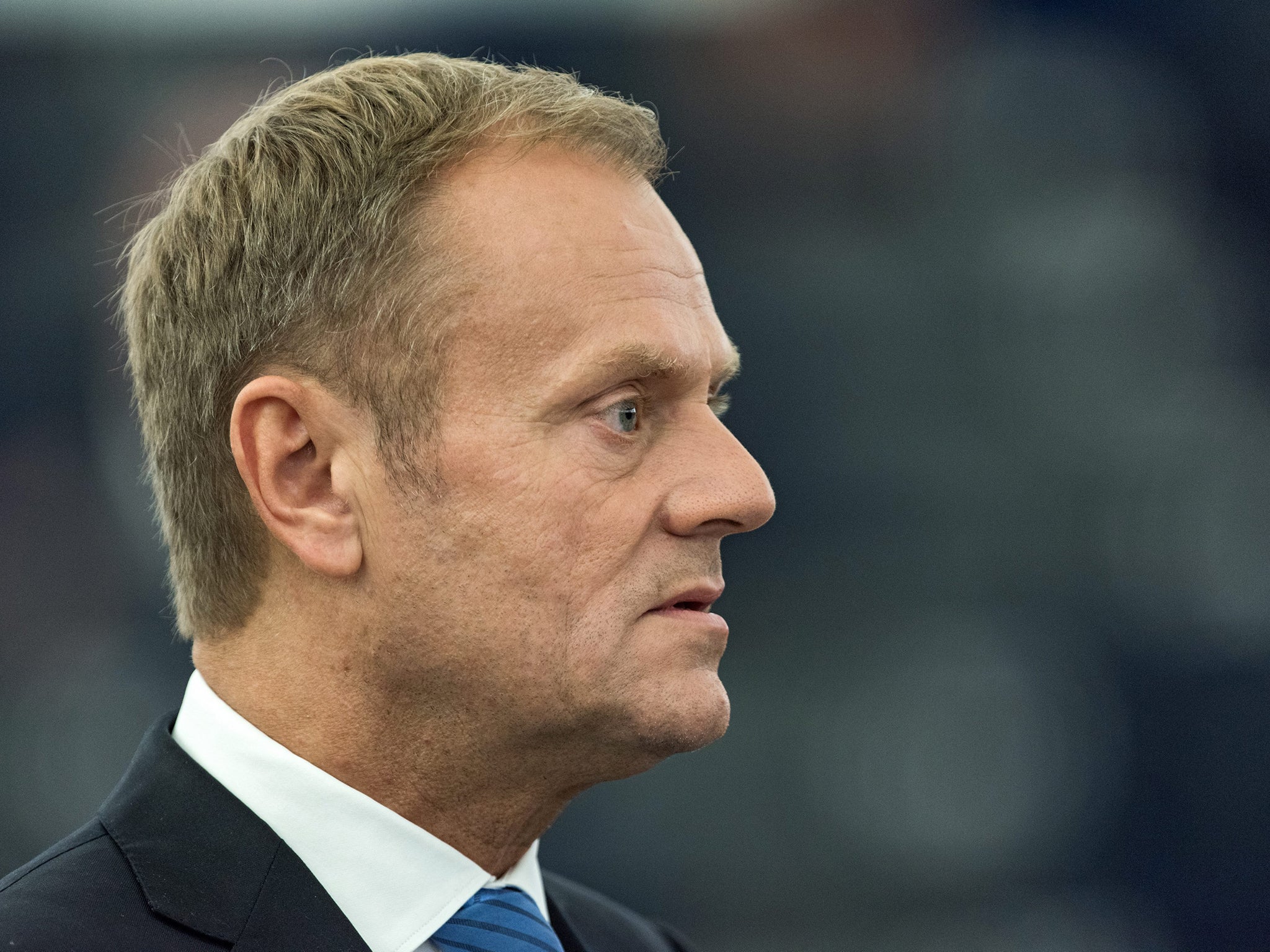Donald Tusk: Freedom of movement is non-negotiable if Britain wants access to single market
Liam Fox has already said keeping the free movement of people ‘is not a price I’m willing to pay’

Your support helps us to tell the story
From reproductive rights to climate change to Big Tech, The Independent is on the ground when the story is developing. Whether it's investigating the financials of Elon Musk's pro-Trump PAC or producing our latest documentary, 'The A Word', which shines a light on the American women fighting for reproductive rights, we know how important it is to parse out the facts from the messaging.
At such a critical moment in US history, we need reporters on the ground. Your donation allows us to keep sending journalists to speak to both sides of the story.
The Independent is trusted by Americans across the entire political spectrum. And unlike many other quality news outlets, we choose not to lock Americans out of our reporting and analysis with paywalls. We believe quality journalism should be available to everyone, paid for by those who can afford it.
Your support makes all the difference.Access to Europe’s single market means Britain must accept the EU’s four freedoms, Donald Tusk has said as he reiterated his stance that the UK cannot have the tariff-free market “à la carte”.
It comes as the European Council President also warned that there will be no formal negotiations “of any kind” until the UK formally notifies the EU of its intention to withdraw from the 28 member state bloc by triggering Article 50. The four freedoms are the free movement of people, goods, capital and services.
Writing on his Twitter account, Mr Tusk added: “On Brexit all 27 [EU countries] agreed that there will be no negotiations of any kind until the UK formally notifies its intention to withdraw from the EU.
“We wish UK as close partner. Access to the single market means acceptance of all four freedoms. No single market à la carte… many expect Europe to do better. Europe brought hope for decades. Our responsibility to return that.”
Launching his Tory leadership campaign yesterday Liam Fox, a former Defence Secretary, said that free movement must end or this would be a “betrayal” of the Brexit vote last month. “If the price of the relationship with the single market is free movement of people, it's a price I'm not willing to pay. I believe the British people have made their view very clear. It is not for politicians to water it down or second guess it,” he said.
Other Tory leader hopefuls – including the frontrunner Theresa May – have said they want the UK to retain access to the tariff-free market while, at the same time, controlling the levels of migration to Britain. After the Leave campaign won on a promise to cut immigration, the new Prime Minister will be under great pressure to get a deal that does not include acquiescence to freedom of movement rules.
But none of those running to succeed David Cameron have said how they will negotiate this relaxation of the EU’s four freedoms in the face of such vocal opposition from the 27 other EU member states.
At a meeting of the leaders of the 27 states last week – excluding Mr Cameron – the European Council President made clear that the council shared German Chancellor Angela Merkel’s view that Britain faces a choice between single market access and the power to control EU migration – and could not have both.
Mr Tusk said that models for Britain’s relationship could include: Canada, which has access to the single market for some of its goods, but crucially not financial services; Norway, which has single market access but abides by freedom of movement rules; and Switzerland, which has single market access for industries, but not for the banking sector, and accepts freedom of movement.
Join our commenting forum
Join thought-provoking conversations, follow other Independent readers and see their replies
Comments